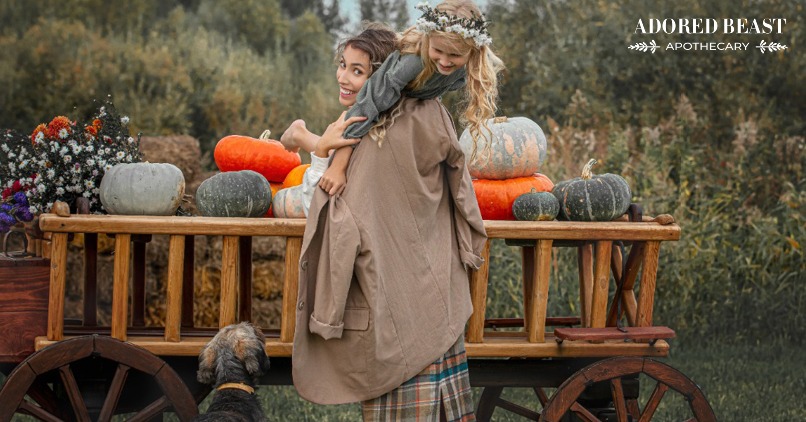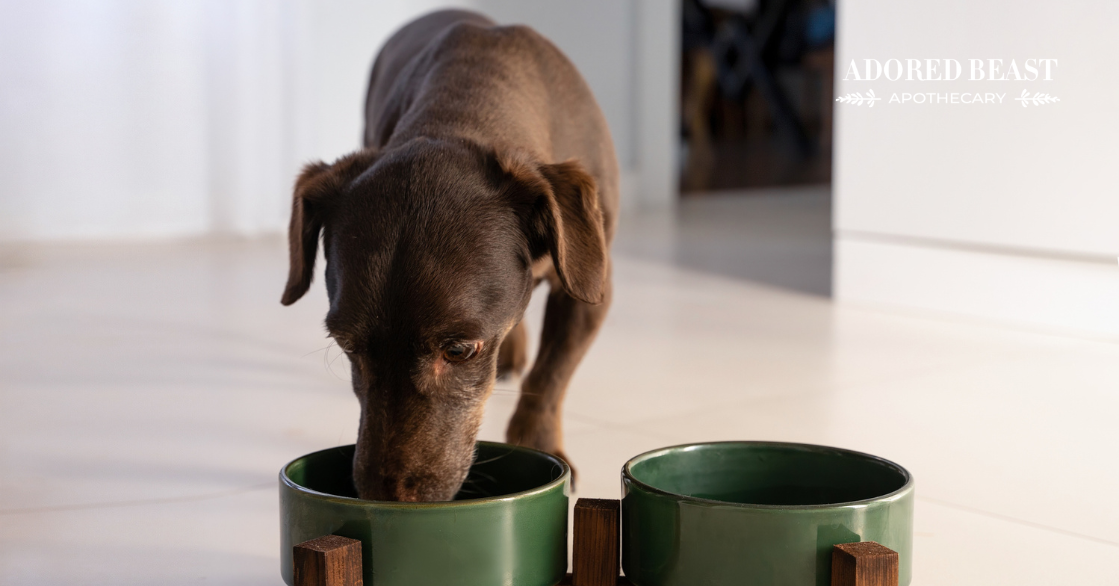There are lots of different things you can give your pet for an added nutritional boost. Blueberries are great for their antioxidant value. Sardines are a healthy go-to for those omega-3s. Then there are raw bones to beat boredom and for all those juicy vitamins and minerals. But have you heard about pumpkin for dogs?
Pumpkin has a lot to recommend it for our own health – but what about feeding it to our canine companions? Is it a good idea or bad idea? It’s a really good idea!! Let’s talk about why – and how to feed it.
The Health Benefits of Pumpkin for Dogs
Pumpkin is a fiber-rich food that also contains many valuable vitamins and minerals. This orange beauty contains:
- Vitamin A (beta-carotene) – great for eye health
- Potassium – helps regulate blood pressure, improve muscle health, and assists in metabolism
- Vitamin C – integral for immune health
- Iron – assists with the formation of red blood cells and hemoglobin
- Zinc – great for skin and coat health
- Phosphorus – important for bone health
- Magnesium – helps with hormone functions, maintaining electrical balance across the membranes, and maintaining calcium movement into the muscles
Wow, this gorgeous gourd really is packing a nutritious punch.
But arguably one of the greatest benefits of pumpkin for dogs has to do with gut health…
Give the Gut Some Love
Perhaps you’ve heard people say to give pumpkin to a dog with diarrhea. And honestly, that’s great advice.
Pumpkin is great for digestion for a number of different reasons. The soluble fiber content in pumpkin adds bulk to your dog’s stool by absorbing excess water. That’s ideal when it’s, well, runnier than normal. But not only that, fiber fermentation produces beneficial fatty acids that supply energy to cells, stimulate intestinal sodium and water absorption, and lower the pH level of the large intestines.
Ironically, the same way pumpkin helps with diarrhea, it can also help with constipation. For a pet who seems to be having a little trouble doing her business, the high water and fiber content in the pumpkin helps bulk up and soften the stool, acting as a natural laxative and making it easier for your pup to poop.
And, even if your pet isn’t dealing with either of these issues, adding a bit of pumpkin to her diet on a regular basis can help keep things moving smoothly inside that digestive tract.
Additionally, fiber also acts as a prebiotic. Prebiotics stimulate the growth or activity of probiotics (beneficial bacteria) in the intestines and inhibit the growth of harmful bacteria. Fiber helps with this by lowering the pH level and providing the necessary nutrients these bacteria need.
What About Squash?
Pumpkin is part of the Cucurbitaceae family, which also includes squash. So, are squash also good to add to your dog’s diet?
Yes! These two Fall delights share many of the same nutritional benefits:
- Fiber
- Protein
- Calcium
- Iron
- Potassium
- Vitamin C & B-6
Just like pumpkin, squash has many healthy benefits for our pets:
- Skin hydration
- Better digestion
- A healthy, shiny coat
- Stronger muscles, kidneys, and nerves
How to Feed Your Dog Pumpkin
Pumpkin is seriously super easy to add to your dog’s diet, whether you feed kibble or raw. In fact, since dry dog food has such a low moisture content, pumpkin is a great way to boost hydration in kibble-fed dogs.
If you’re feeding it specifically to deal with a bout of diarrhea, start with 1-2 tablespoons and work up to 3-4. Just open a can of pure pumpkin (make sure it isn’t pumpkin pie filling) and plop those scoops on top of her regular food. If you want to use fresh pumpkin, that’s perfectly ok too! Just puree it!
If you’re just looking to add it as an occasional nutritional boost, the same goes. A tablespoon or two with her regular food will add vitamins and minerals without adding a ton of calories.
You can even turn fresh or canned pumpkin into a fun and healthy treat.
Pumpkin for Dogs: An Easy Treat Recipe
Making pumpkin treats is really easy. We always have a batch in the freezer, both for regular treating and to add to dinner every few days.
We really like these ones because there’s no baking, so the nutritional value of the pumpkin is maintained. Cooking can cause a loss of some of those nutrients, so with these treats we avoid that – and the dogs don’t mind having a pupsicle, no matter what time of year it is.
Ingredients:
- 1/2 cup plain kefir
- 2 cups raw pumpkin (either canned or fresh, pureed)
- a handful of blueberries
Blend together the kefir and the pumpkin, then pour into ice cube trays. Pop a few blueberries into each section, then pop the whole thing into the freezer. Let them freeze for for 4-5 hours, them pop them out and store them in an airtight container. They’ll keep in the freezer for 2-3 months, if you haven’t fed them all before that!!
Enjoy!












